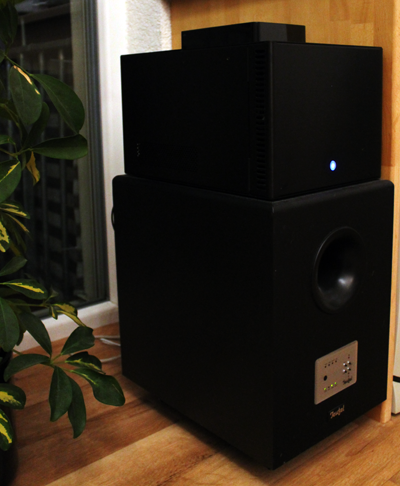Hi OMV-Community,
I'm a OMV user and fan since the first hour and appreciate all the history, development and efforts of this beautiful project.
In the recent time I often noticed that when people requested different features as a plugin the community reacted: just use Docker for this. This is a natural reaction since Docker / Containerization became the de facto standard of "server side apps". This trend seems to reflect in the plugin selection. There are a few plugins remaining but for the most interesting features the way seems to be to check for a respective Docker Compose snippet.
Besides this observation I encountered an issue when a big part of my network share (folders + files) suddenly disappeared. This happens occassionally and luckily enough a simple restart fixes this problem. I don't judge OMV for this, maybe it's an integrity problem caused by hardware, etc. Nevertheless it's quite concerning when a huge part of your data suddenly disappears. That made me curious for NAS software in 2024. The big players seem to be OMV, TrueNAS and Unraid.
When watching some videos about Unraid and reading some blog posts, it took me quite a while to realize what the success factors / the reasons for the hype around Unraid are.
* Simple creation and management of solid storage pools with parity features out of the box
* Native (first class?) Docker support, shipped as predefined "server side apps"
After a while I came to the conclusion that these two capabilities are pretty much the core features for me that make a NAS interesting. For sure this is only one single perspective and this is achievable with OMV, too. On the other hand I'm convinced that a system gets incredibly powerful by solid/simple core features and a vast variety of extensions.
You might ask: why don't you just switch to Unraid then? Well, I'm still a huge OMV fan and really disagree with a proprietary solution for all my data (no, it's not the pricing/license fee).
What do you think about the focus on this two core capabilities of a NAS solution? Is it a valid view for the future of OMV or is my point of view to specific/biased?
I'm aware this is a rather provocative and sensational question and might evoke emotions. Nevertheless I ask you for a discussion in substance.
Cheers
InTheNoon

